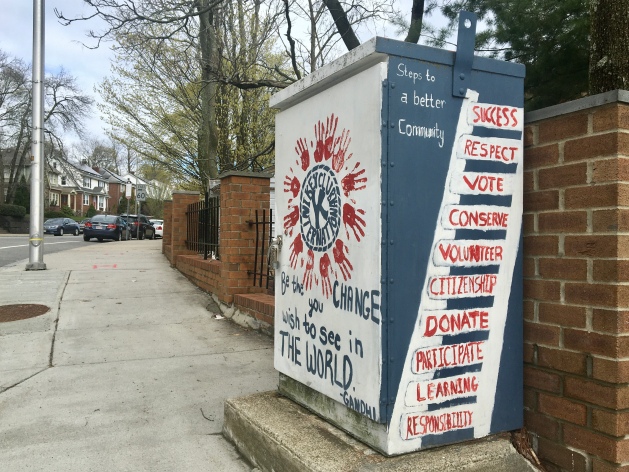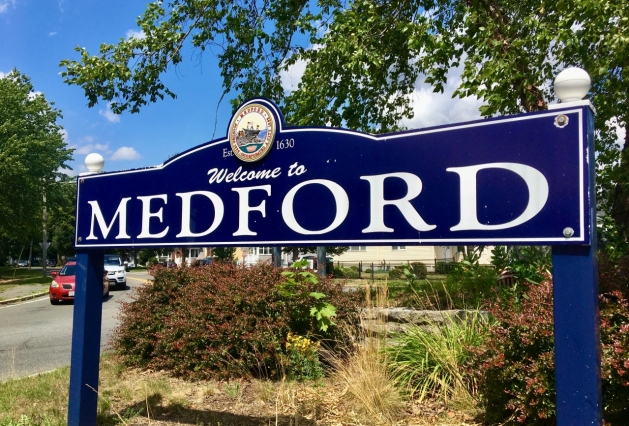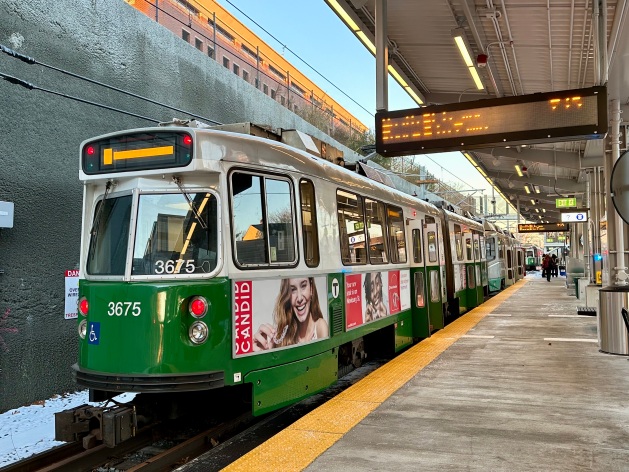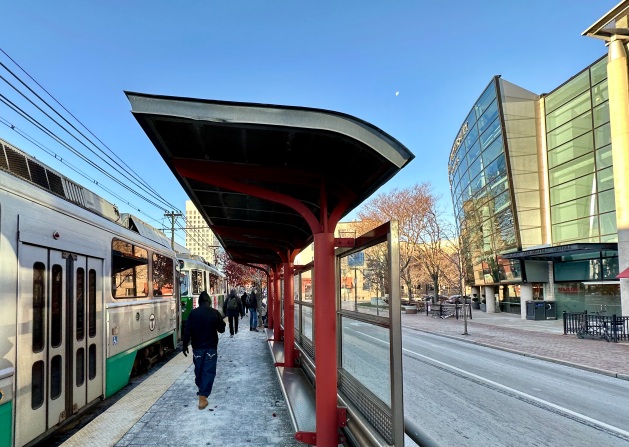
Winthrop Circle, looking toward Medford Square. Photo (cc) 2021 by Dan Kennedy
Warning: Hardcore Medford post ahead.
Forty years of Proposition 2-1/2 have caught up with us in Medford. City Councilors Zac Bears and Kit Collins have proposed a $12 million override, which they say is needed to solve our long-term structural deficit. Mayor Breanna Lungo-Koehn, seeking a compromise, has come back with a counteroffer for an override that would add $3 million to the property-tax levy. Thanks to Gannett, all of this is playing out in the absence of any regular news coverage.
The debate is going to come down to whether Medford residents can afford to pay more property taxes. I’ve attempted to provide some baseline numbers, drawing on data from the state and the U.S. Census. (Thanks to those of you who helped me find what I needed.) You can look at those numbers here. Let me offer a few takeaways.
First, Medford’s residential property-tax rate is very low — just $9.01 per $1,000 of assessed valuation, placing us at No. 317 of the 348 cities and towns for which I was able to get data. (There are 351 municipalities in the state.) But that’s an irrelevant number, derived from our soaring property values. So let’s get to the good stuff.
Second, our property-tax burden per capita, based on a residential property tax levy of $105.3 million, is $1,766. That puts Medford at No. 248, or in the 29th percentile. By that measure, the property-tax burden here is relatively low. The per capita burden in bordering communities: $4,676 (Winchester, No. 23); $2,911 (Arlington, No. 95); $1,798 (Somerville, No. 244); $1,244 (Malden, No. 321); and $947 (Everett, No. 338). Everett is not an affluent community, but I suspect its property-tax burden is unusually low because of the taxes paid by the Encore casino.
Now, that tells you a lot. But our third breakdown should be the most useful, because it’s based on some measure of whether a community can actually afford its residential property taxes. I’ve taken the tax burden per capita and divided it by median household income. That might sound like apples-and-oranges, but it’s not, since I’m doing it consistently for all 348 cities and towns. In other words, the percentage for any one community may not mean much, but the ranking should work as a pretty accurate measure. Let me walk us through this a bit more carefully.
In Medford, the median household income is $101,168, which makes us a relatively affluent community (No. 129). With per capita residential taxes of $1,766, that gives us 1.75% for property-tax burden as a percentage of per capita income. By that measure, Medford is No. 313. That puts us at the 10th percentile. In other words, the property-tax burden is higher in 90% of Massachusetts communities than it is in Medford. Again, let’s look at our neighboring cities and towns.
- Winchester, 2.7% (No. 108)
- Arlington, 2.54% (No. 133)
- Somerville, 1.76% (No. 308)
- Malden, 1.67% (No. 324)
- Everett, 1.25% (No. 341)
Let me offer one final calculation. If you add the mayor’s proposed $3 million override to our total tax levy of $105.3 million, that would be an increase of a little more than 2.8%. If you go with the Bears-Collins proposal to add $12 million, that’s 11.4%. That latter move would bring the property-tax burden as a percentage of per capita income to 1.94% and move Medford up to No. 265. But we would still be in just the 24th percentile, with residents of 76% of other communities paying more of their income on property taxes.
One argument we’re already hearing is that the override — especially the more aggressive $12 million override — is being pushed by affluent newcomers to Medford, and that longtime residents can’t afford it. There is something to that. If you’ve lived here for all or most of your life, you may very well be house-rich but relatively income-poor. We don’t want to force residents into selling because they can’t afford to pay their taxes. Property values are already spiraling out of control in Medford — up 10.1% between June 2021 and June 2022, according to Redfin.
By every objective measure, though, Medford residents can afford either override option, and even the higher of the two would still leave us well below the state average.
Correction: I’ve rewritten the top to clarify that Councilors Bears and Collins’ proposal came first, followed by Mayor Lungo-Koehn’s counterproposal.

















